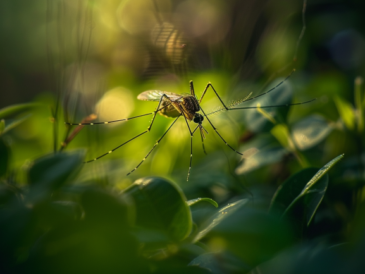Keeping your home and garden free from pests like flies and mosquitoes can be a challenge. However, certain plants have natural repellent properties that can help. Here are eight plants you can grow to keep those pesky pests at bay:
1. Lavender (Lavandula)
- Why It Works: Lavender’s strong fragrance is pleasant to humans but deters flies, mosquitoes, and moths.
- How to Use: Plant lavender in sunny areas of your garden or place potted lavender near entryways. Use dried lavender in sachets indoors.
2. Basil (Ocimum basilicum)
- Why It Works: Basil emits a strong scent that mosquitoes and flies find unappealing.
- How to Use: Grow basil in pots on windowsills, outdoor seating areas, and near doorways. Crush a few leaves to release its oils for a stronger effect.
3. Marigolds (Tagetes)
- Why It Works: Marigolds contain pyrethrum, a natural compound found in many insect repellents.
- How to Use: Plant marigolds in garden borders, vegetable patches, or near entrances to keep mosquitoes and aphids away.
4. Mint (Mentha)
- Why It Works: Mint’s potent aroma repels flies, mosquitoes, ants, and even mice.
- How to Use: Grow mint in containers to prevent it from spreading uncontrollably. Place pots around outdoor areas and doorways, or use fresh mint leaves indoors.
5. Rosemary (Rosmarinus officinalis)
- Why It Works: Rosemary’s woody scent repels mosquitoes, flies, and moths.
- How to Use: Plant rosemary in sunny spots in your garden or keep potted rosemary on patios. Use sprigs of rosemary as skewers for grilling to add flavor and deter insects.
6. Lemongrass (Cymbopogon citratus)
- Why It Works: Lemongrass contains citronella, a well-known mosquito repellent.
- How to Use: Plant lemongrass in sunny, well-drained areas of your garden. Crush the leaves to release the citronella oils or use lemongrass essential oil for a stronger effect.
7. Catnip (Nepeta cataria)
- Why It Works: Catnip contains nepetalactone, which is highly effective at repelling mosquitoes.
- How to Use: Grow catnip in your garden or in pots. Crush the leaves to release its oils, but be aware that it may attract cats.
8. Citronella (Cymbopogon nardus)
- Why It Works: Citronella grass produces a strong aroma that masks other scents, effectively keeping mosquitoes at bay.
- How to Use: Plant citronella in large pots or garden beds in sunny areas. Use citronella candles or oils made from the plant for additional repellent effects.
Tips for Maximizing Effectiveness:
- Placement: Strategically place these plants near windows, doors, and outdoor living spaces to create a natural barrier against pests.
- Maintenance: Keep the plants healthy and well-maintained to ensure they continue to produce the aromatic oils that repel pests.
- Companion Planting: Use these plants as companions in your vegetable garden to protect crops from insect damage.
- DIY Repellents: Crush the leaves of these plants and rub them on your skin or clothing as a natural insect repellent.
By incorporating these plants into your garden and home, you can enjoy a more pest-free environment naturally and effectively.




